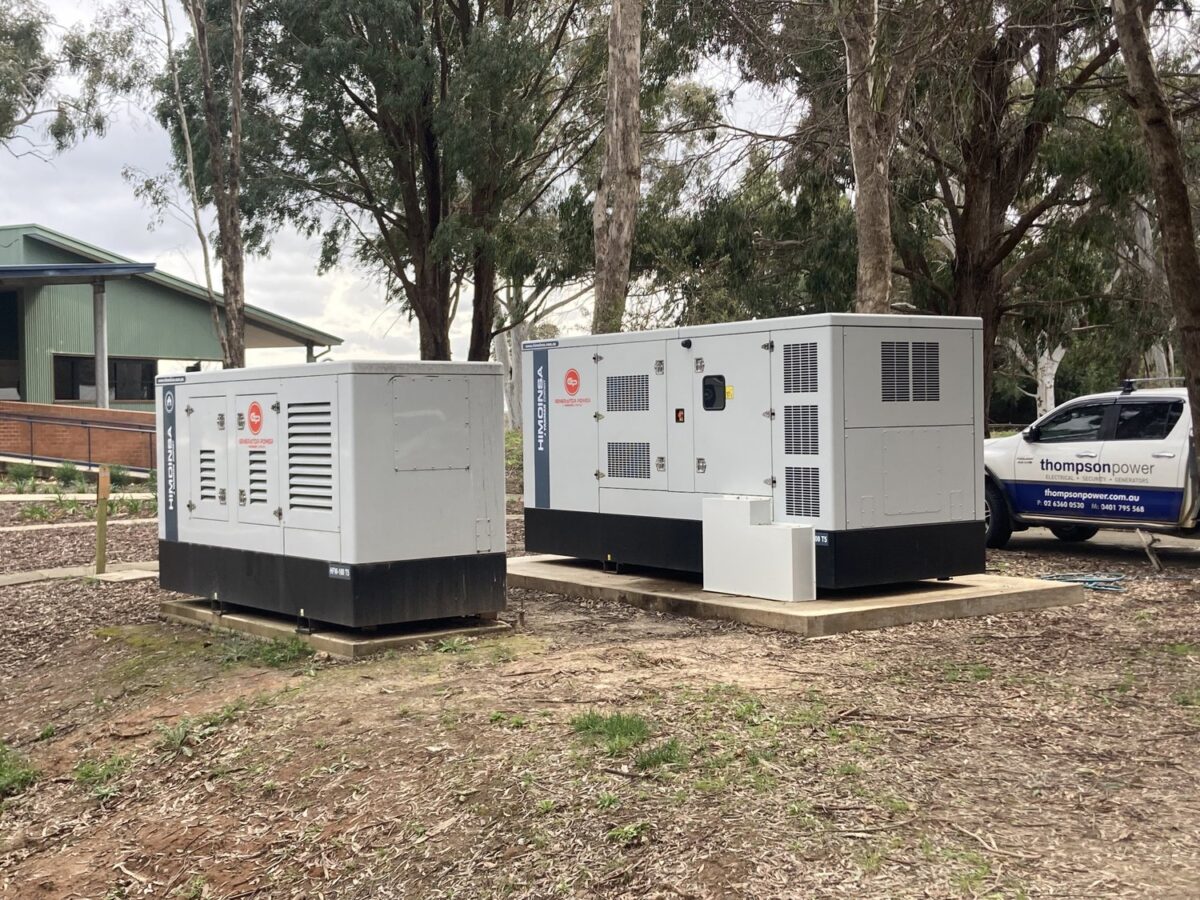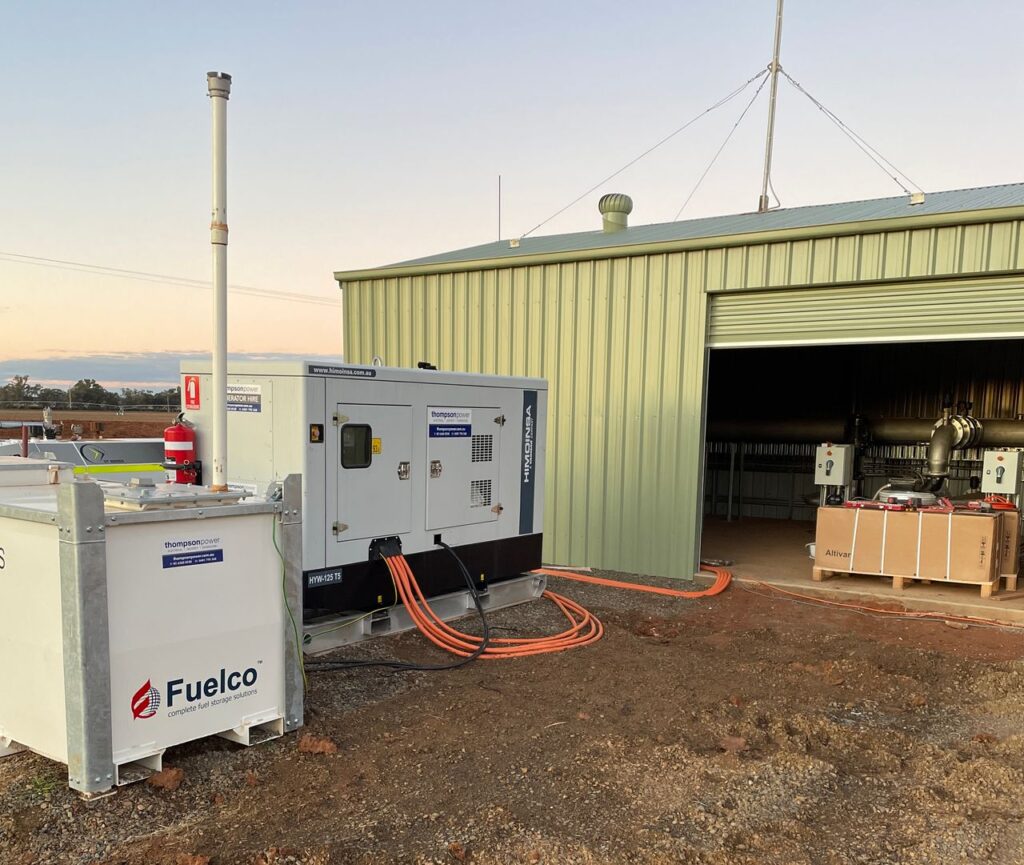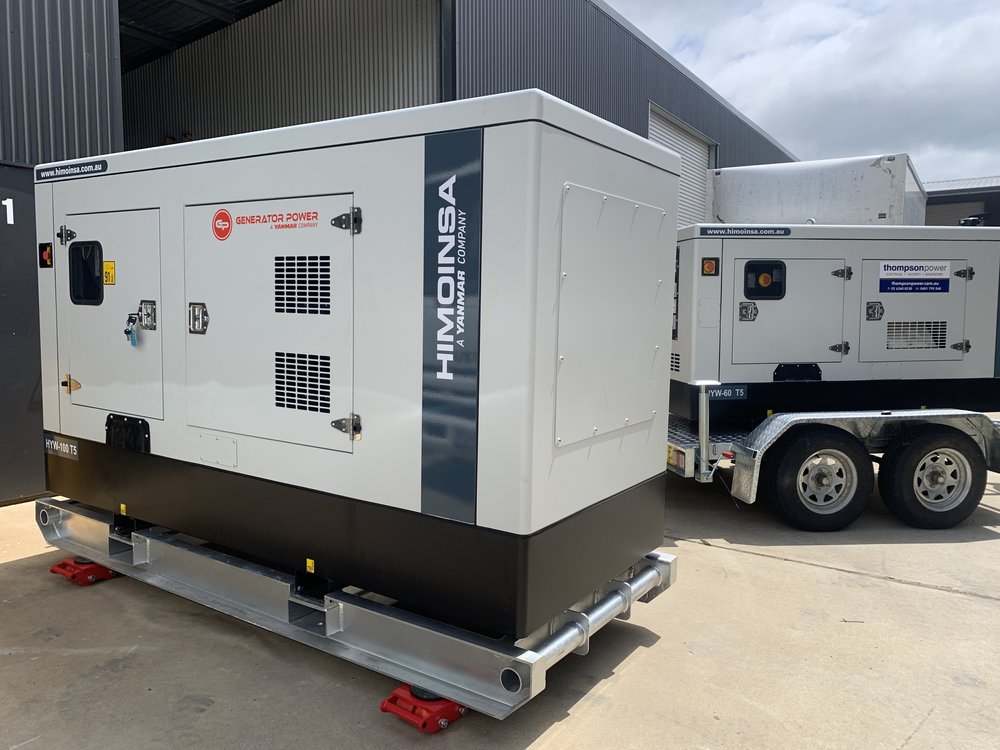How Long Does a Generator Last?

Diesel generators are a major expense for any business. Whether you’re building a backup system, need power for a one-off event or use generators to run your tools every day, it’s important to maximise your investment.
The good news is that commercial-grade generators can last for decades. With the right maintenance and care schedule, your generators can provide years of use.
But the lifespan of your generator depends on the fuel source, how it’s used, maintenance requirements and more. In this article, we’ll find out how long a generator lasts, as well as some things you can do to extend its life expectancy.

How Long Does a Generator Last?
Commercial backup generators typically last 20,000 hours or more of total use. That equates to 15-30 years when the system is maintained properly.
The lifespan of a generator depends on the type of generator, how it’s used, maintenance requirements and more. Here’s a rough idea of how long you can expect each type of generator to last:
- Petrol generators can last for 1,000 to 2,000 hours
- Gas generators can last for 10,000 to 30,000 hours
- Diesel generators can last for 15,000 to 50,000 hours
These are rough figures only. The quality and usage of generators vary widely. Systems designed for permanent installation in commercial settings can last for decades. On the other hand, consumer generators meant for at-home use may only last for a few years.
Generally speaking, diesel generators provide the longest lifespan.
Like diesel vehicles, diesel generators use high-torque, low-RPM engines with tough internal components. These generators can operate continuously for days on end without breaking a sweat. This gives them an incredibly long lifespan when used to provide backup power.
How to Extend the Lifespan of a Generator
You can extend the lifespan of a diesel backup generator with the following tips:
- Invest in professional maintenance. Generators need to be serviced at regular intervals, typically every 100-150 hours. This can dramatically extend the lifespan of a generator and its electrical system.
- Protect the generator from the elements. Install and store your generators in a dry environment that’s protected from the sun, rain, dirt and extreme temperatures. This reduces the overall wear and tear on components.
- Run the generator periodically. Backup generators often sit for years without use. This can reduce the lifespan of the system. Along with regular maintenance, backup generators should be run regularly to circulate oil, test components and prevent breakdowns.
- Allow the generator to cool down during use. If your generator is being used for extended periods of time, it’s a good idea to switch the system off and allow it to cool down periodically.
- Use quality fuel and additives. Supply your generators with fresh, high quality fuel and additives. Quality fuel burns more cleanly and reduces build ups of minerals and carbon that can affect generator performance.
- Balance the electrical load. Balancing the load across multiple generators and circuits will reduce the strain on each backup generator.
- Avoid overloading the generator. Generators are designed with a maximum power output in mind. If you run a generator at maximum capacity for prolonged periods, it will shorten the lifespan and increase maintenance costs.
Learning how and when to run your generator is the best thing you can do to maximise its lifespan. To prevent overloading, we design generator installations with built-in redundancy. This allows your generators to work harder without reducing their lifespan.
Speak to a professional electrician if you’re thinking about installing a backup generator. We can specify the right solution for your application.

Diesel Generator Maintenance Requirements
Maintenance is the biggest factor in the lifespan of a generator. You wouldn’t drive your car around for years without changing the oil, so you shouldn’t run a generator without having it serviced.
Commercial generators typically need to be serviced every 100-150 hours of run time. If they aren’t being used, generators should be inspected and serviced every 3-6 months to ensure they’re ready for action.
Each maintenance appointment will include regular service items like:
- A full system inspection
- Load testing the electrical circuit
- Cycling the generator to ensure it runs properly
- Replacing oil, filters and other fluids
- Checking fuel filters and water traps for signs of problems
- Running diagnostic tests
Servicing should always be carried about by a professional electrician that can accurately test the system.
These simple checks take very little time, but they’re the best way to extend the life of a commercial generator. The major benefit is that your technician can spot small problems before they turn into serious issues. This allows them to repair the generator and ensure it’s ready to provide the power you need.
Get the Power You Need with Portable Generator Hire from Thompson Power!
Portable diesel generators are some of the hardest-working tools you can invest in. With a quality installation and regular maintenance, your generators could last for decades.
If you’re looking to power your worksite, install backup generators or need electricity for an event, Thompson Power can help! We offer portable generator hire across Central Western New South Wales.
We operate a fleet of portable diesel generators from manufacturers such as Himoinsa, Cummins and Kubota. These are the brands we trust to deliver peak performance for longer, so they’re perfect for every application.
Speak with our team if you’re looking to rent a generator that can provide years of trouble-free power!
